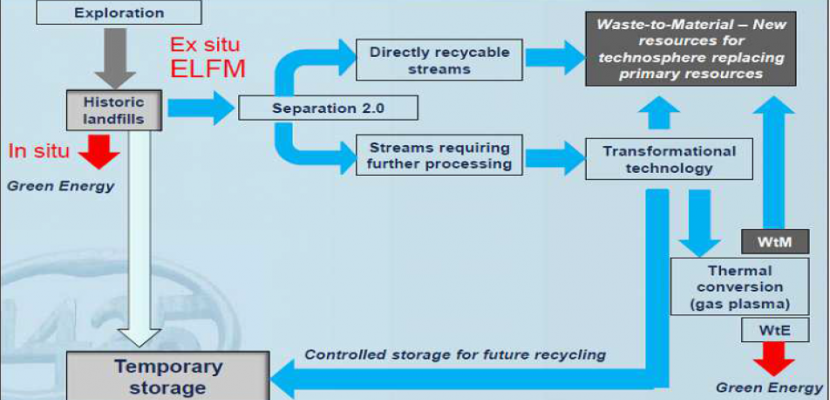Image

Temporary storage on landfills policy in Flanders
Published on 25 September 2019

Belgium
This is the good practice's implementation level. It can be national, regional or local.
About this good practice
In Flanders, new waste is either landfilled or incinerated. The reason for this is that currently no suitable techniques are available yet to valorise this waste. Hence, this can lead to a sub-optimal use of this waste. Therefore, an objective of the government is to save up the waste and do resource management. Thus, the waste is not really landfilled, but is stored temporarily with a view to its future valorisation when suitable techniques are available. In short, a landfill site becomes a mine for tomorrow's raw materials..
Temporary storage can take place in two different ways. Firstly, the waste can be distributed into different compartments based on the type of waste stream at a specific landfill site. This landfill site is built in accordance with the current regulations (foil, leachate collection, drainage layers, etc.) and can receive other waste streams from outside. Another principle involves the creation of mono-landfills with one type of waste stream (cf. current metal business). This principle simplifies the valorisation process of this specific waste stream in the future. Both ways of storing are done since the first act on waste in 1981 so Flanders was quite early in doing this. The official aftercare in Flanders is 20 years.
Temporary storage can take place in two different ways. Firstly, the waste can be distributed into different compartments based on the type of waste stream at a specific landfill site. This landfill site is built in accordance with the current regulations (foil, leachate collection, drainage layers, etc.) and can receive other waste streams from outside. Another principle involves the creation of mono-landfills with one type of waste stream (cf. current metal business). This principle simplifies the valorisation process of this specific waste stream in the future. Both ways of storing are done since the first act on waste in 1981 so Flanders was quite early in doing this. The official aftercare in Flanders is 20 years.
Resources needed
A team of five people worked together on the content of the conept note.
Evidence of success
The Flemish conceptnote on sustainable storage policy was granted by the Flemish parliament on 16 October 2015.
Also, because of the early policy on monolandfilling, today Flanders has landfills with a qualitative 'product' which effectively leads to landfill mining projects. See for instance the good practice 'De Blankaart landfill mining project: an economic viable case '
Also, because of the early policy on monolandfilling, today Flanders has landfills with a qualitative 'product' which effectively leads to landfill mining projects. See for instance the good practice 'De Blankaart landfill mining project: an economic viable case '
Potential for learning or transfer
Temporary storage with a view to valorisation prevents the use of current expensive, energy-intensive separation processes for waste streams which can be exploited again in the future, possibly with cheaper techniques, as raw materials. The principles of this good practices can be used anywhere, and can be implemented according to your national or regional waste legislative framework
Good practice owner
You can contact the good practice owner below for more detailed information.
Organisation
OVAM - Public Waste Agency of Flanders

Belgium
Prov. Antwerpen
Contact
Project coordinator